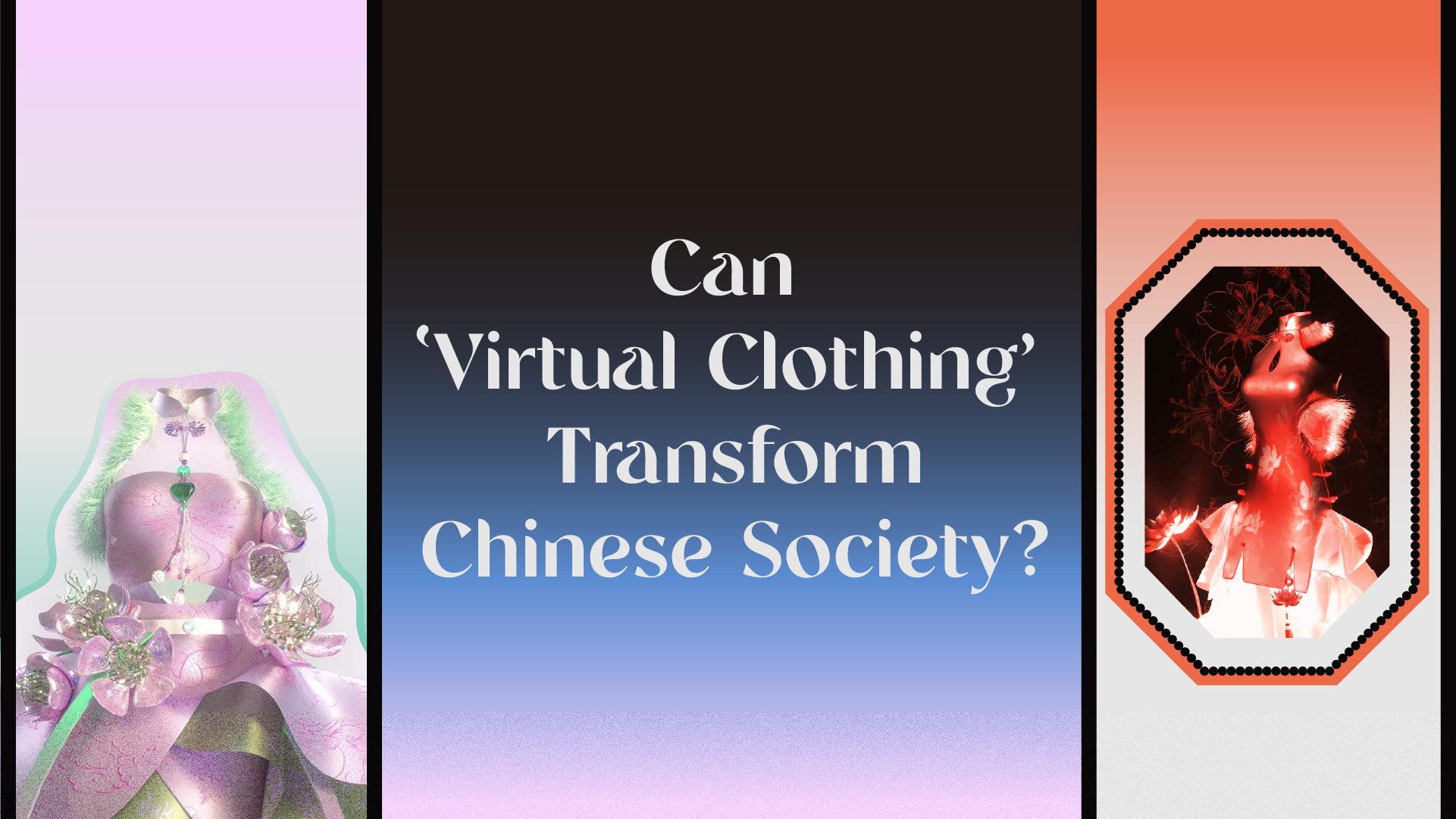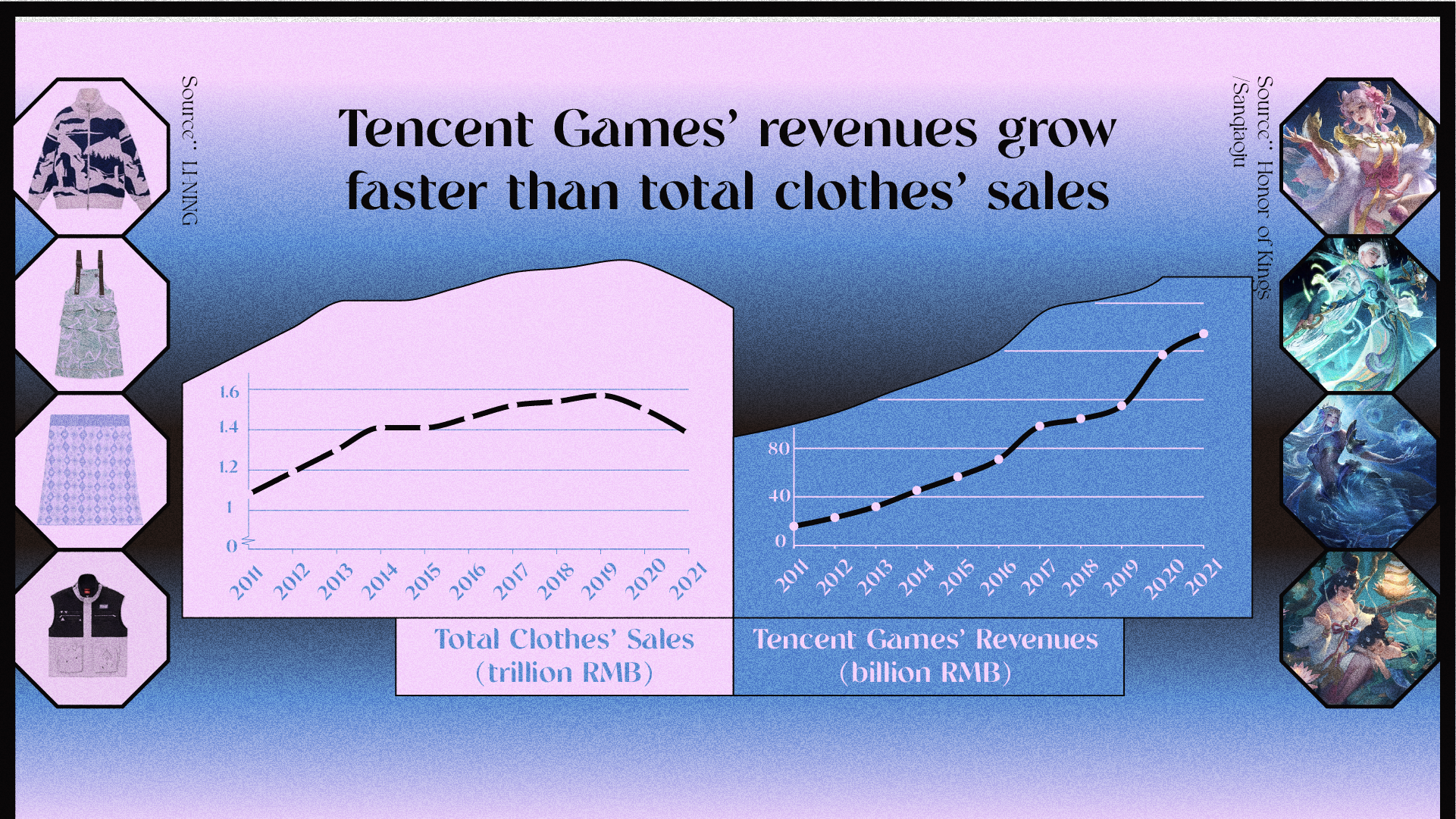03:10

"The peach blossom fan", a beautiful virtual outfit, has captured more than 8600 likes and 1000 collects, since its posting on Qiushuiyu's Xiaohongshu profile. Designed in a metallic style, the dress is rarely seen in the real world.
But what makes the dress so unique? Qiushuiyu, a college student, is the designer and sole owner of this digital collection, thanks to blockchain technology. Now, she is prepared to sell this neo-Chinese style dress online to a limited 33 clients at 328 yuan for each.
Recently, Chinese youths, including Qiushuiyu, have shown much enthusiasm in virtual clothing as a new symbol of youth power. But from an economic and cultural perspective, could it be transformational as well?
First, let's look at two unrelated, but interconnected statistics. Between 2011 and 2021, total clothes' sales in China have increased steadily from 1.08 to 1.38 trillion RMB. The revenue of Tencent Games, however, soared from 15.8 to 174.3 billion RMB over the same period.

Hua Chuang Securities estimates that, on 2020 New Year's Eve alone, 2 billion RMB worth of 'skins' had been sold for in-game characters in the Honor of Kings, Tencent's flagship mobile game.
Since the majority of Tencent games' revenue comes from skins, according to its annual reports, the different growth rates paint a broad picture of virtual clothing as a transforming power boosting economic growth.
Meanwhile, from QQ show – a virtual image embedded online chatting software from 20 years ago – to today's hottest mobile games, virtual clothing has emerged as the young Chinese generation's online lifestyle, with real economic benefits.
Secondly, virtual clothing, in the format of game skins, can transform culture, by injecting a renewed interest in traditional Han Chinese clothes.
Defying the downward trend of overall clothes' sales during the COVID-19 pandemic, Han Chinese clothes' sales have risen from 0.19 to 6.36 billion RMB between 2015 and 2020, according to iiMedia research.
Since the Chinese rarely wear Han clothes in normal life, going virtual becomes an alternative way to showcase their appreciation for traditional Chinese culture.
In Qiushuiyu's virtual dress collections, neo-Chinese style can be found in button designs and Chinese characters on skirt surfaces. Even the skins of mobile games' characters need to use Dunhuang Murals' elements and Yue opera costumes as key selling points.
The truth is, although virtual clothing is virtual by name, its impact on the Chinese society is real. Either by driving economic growth or promoting traditional culture, its transforming power is only beginning to unleash.
(If you want to contribute and have specific expertise, please contact us at opinions@cgtn.com. Follow @thouse_opinions on Twitter to discover the latest commentaries in the CGTN Opinion Section.)